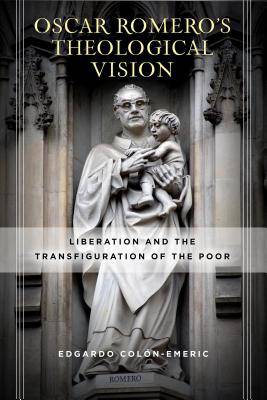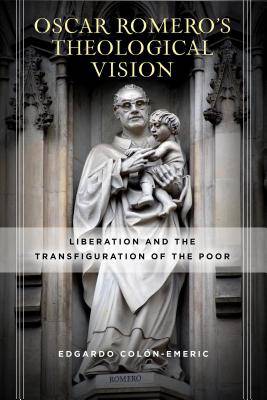
- Retrait gratuit dans votre magasin Club
- 7.000.000 titres dans notre catalogue
- Payer en toute sécurité
- Toujours un magasin près de chez vous
- Retrait gratuit dans votre magasin Club
- 7.000.0000 titres dans notre catalogue
- Payer en toute sécurité
- Toujours un magasin près de chez vous
Óscar Romero's Theological Vision
Liberation and the Transfiguration of the Poor
Edgardo Colón-EmericDescription
This ambitious book examines Saint Oscar Romero's words to understand how his thoughts fit into the broader context of Catholic theology.
On March 24, 1980, Archbishop Óscar Romero was assassinated as he celebrated mass in El Salvador. He was canonized as a saint by Pope Francis on October 14, 2018. Edgardo Colón-Emeric explores the life and thought of Romero and his theological vision, which finds its focus in the mystery of the transfiguration.
Romero is now understood to be one of the founders of liberation theology, which interprets scripture through the plight of the poor. His theological vision is most succinctly expressed by his saying, "Gloria Dei, vivens pauper" "The glory of God is the poor who lives." God's glory was first revealed through Christ to a landless tenant farmer, a market woman, and an unemployed laborer, and they received the power to shine from the church to the world.
Colón-Emeric's study is an exercise in what Latino/a theologians call ressourcement from the margins, or a return to theological foundations. One of the first Latin American Church Fathers, Romero's theological vision is a sign of the emergence of Christianity in the Global South from "reflection" Church to "source" Church. The hope for this study is that scholars in the fields of theology, religious studies, and Latin American studies will be captivated by the doctrine of this humble pastor and inspired to think more clearly and act more decisively in solidarity with the poor.
Spécifications
Parties prenantes
- Auteur(s) :
- Editeur:
Contenu
- Nombre de pages :
- 418
- Langue:
- Anglais
Caractéristiques
- EAN:
- 9780268104733
- Date de parution :
- 30-10-18
- Format:
- Livre relié
- Format numérique:
- Genaaid
- Dimensions :
- 152 mm x 229 mm
- Poids :
- 725 g

Les avis
Nous publions uniquement les avis qui respectent les conditions requises. Consultez nos conditions pour les avis.






